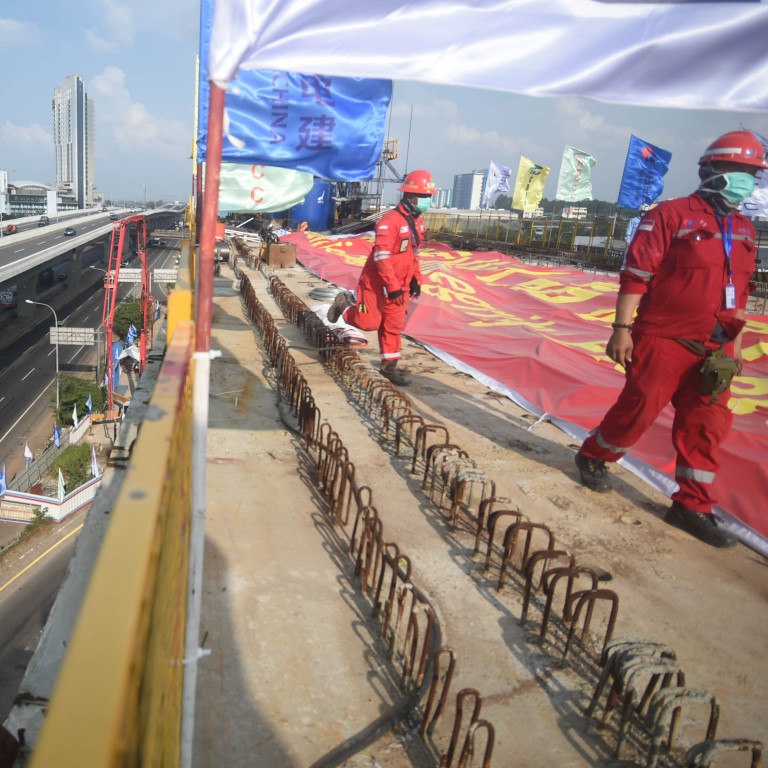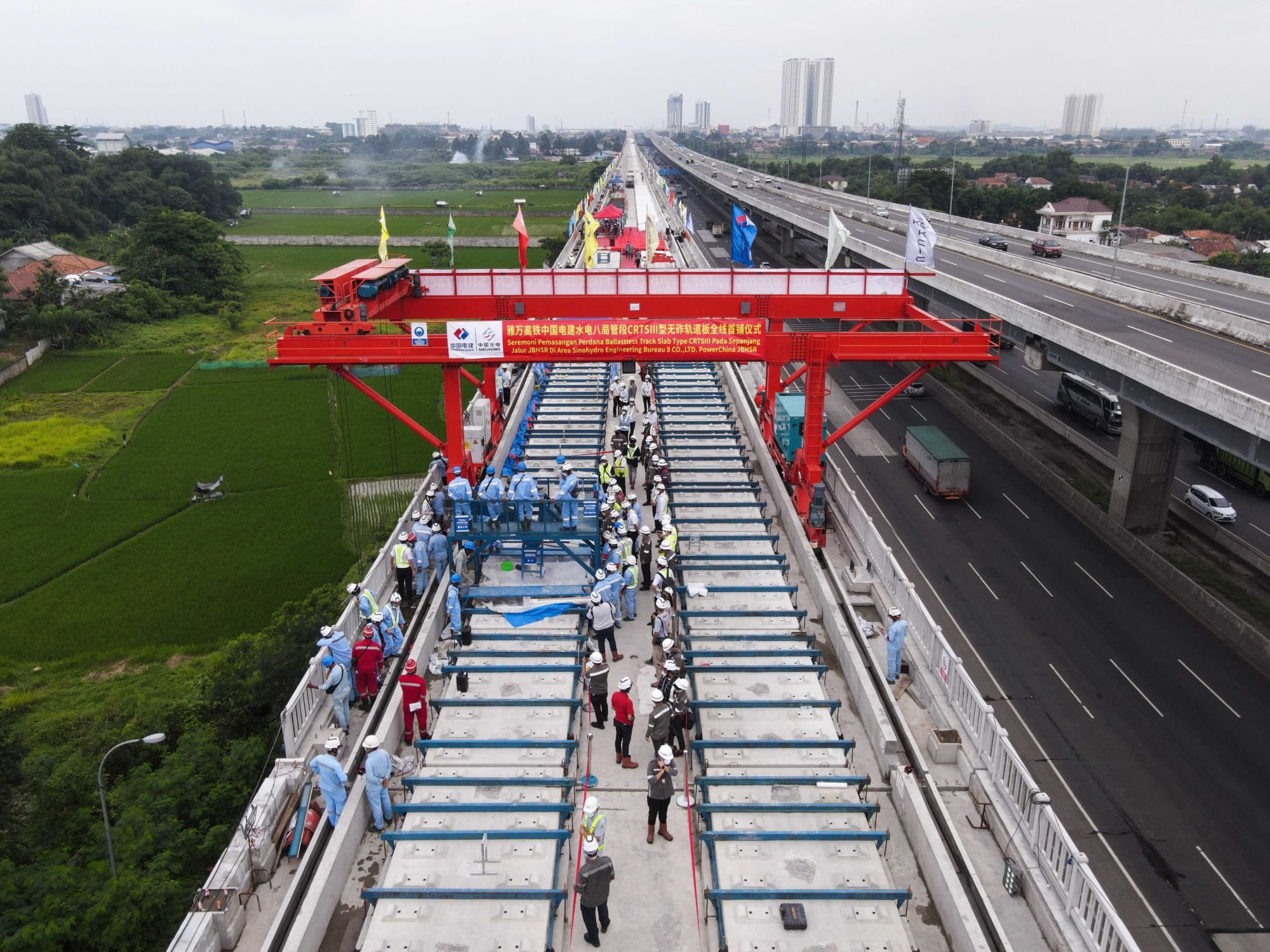
Are Indonesia, Malaysia and Sri Lanka really ‘victims’ of China’s belt and road ‘debt trap diplomacy’?
- Indonesia owes Chinese lenders more than US$22 billion for financing projects like the 150-kilometre Jakarta-Bandung High Speed Train
- Analysts argue that recipient countries are not hapless victims, but actively shape how China’s development-financing system is being implemented
Hong Kong creditors are also owed money, with total debt in March reaching US$16.85 billion. That is an increase from the March 2021 figure of US$14.25 billion, but down from the February 2022 total of US$16.97 billion.
Overall, however, Indonesia’s external debt in the first quarter of 2022 declined to US$411.5 billion compared to US$415.7 billion from the previous quarter.
China’s ‘debt-trap’ diplomacy is a myth made in the Trump era
Scholars, however, have noted that such views are inaccurate. Beijing’s fragmented and poorly coordinated international-development financing system is not geared towards geopolitical gains.
Lee Jones, a reader in international politics at Queen Mary University of London, and Shahar Hameiri, an associate professor of international politics at The University of Queensland, have reported that recipient countries such as Indonesia and Sri Lanka are not hapless victims, but actively shape how China’s development-financing system is being implemented. Accordingly, the Belt and Road Initiative does not follow a well-defined plan, but emerges piecemeal, through diverse bilateral interactions, with outcomes being shaped by domestic interests, agendas and concerns.
Sri Lanka rejects fears of China’s ‘debt-trap diplomacy’
Sri Lanka’s debt trap was thus mostly generated by internal policy decisions, aided by Western financiers – it owes around half its external debt to private bondholders in international credit markets – rather than by the actions of China’s government.
Between 2006 and 2019, Chinese infrastructure investments in Sri Lanka totalled US$12.1 billion, a 2020 Chatham House study found, accounting for about one-third of the US$36 billion the country needed to plug its infrastructure gap, according to a 2014 World Bank estimate.
Projects such as the port in Hambantota reflected then-President Mahinda Rajapaksa’s wish to direct resources to his home district, and the wider region, where his Sri Lanka Freedom Party faced a mounting opposition challenge.

Japan and China competed for the contract, but it went to China Railway Group Limited in 2015 after a period of intense lobbying and back-and-forth negotiations that saw the Chinese side ultimately drop its initial requirement for the Indonesian government to guarantee the project’s debts, in favour of a business-to-business agreement.
China Development Bank offered loans to cover 75 per cent of the project’s cost with a 40-year repayment term, and completion was promised in time for Indonesia’s general election in 2019.
The complicated and time-consuming land acquisition process wasn’t completed until 2020, however, as landholders along the route resisted selling, causing the cost of compensation to climb steeply. Other completion delays and cost overruns were suspected to be the result of inadequate government planning.
Beijing has refused to provide additional funding for the Jakarta-Bandung line, leaving Indonesia to extend a bailout that will put a strain on resources for other infrastructure development.
The Jakarta-Bandung project shows the scale of Indonesia’s mismanagement, and the degree to which Beijing is used as a scapegoat for self-inflicted problems.
Where China fits in Jokowi’s plan for US$33 billion new capital city
While it is true that Indonesia could face negative implications from its increasing indebtedness to China, it is incumbent on Jakarta to find ways to maximise the benefits while minimising any potential drawbacks.
The government should play a larger role in determining the longevity and financial feasibility of new projects, and must be able to skilfully negotiate with China to ensure it reaps the profits from Beijing’s Belt and Road Initiative.
Given that China has committed itself to abiding by the law and regulations in host countries, Indonesia must ensure that it upholds its legal and regulatory mechanisma.
Civil society and political opposition groups, meanwhile, should concentrate their efforts on demanding transparency and public participation in the decision-making process for for China-backed projects.

